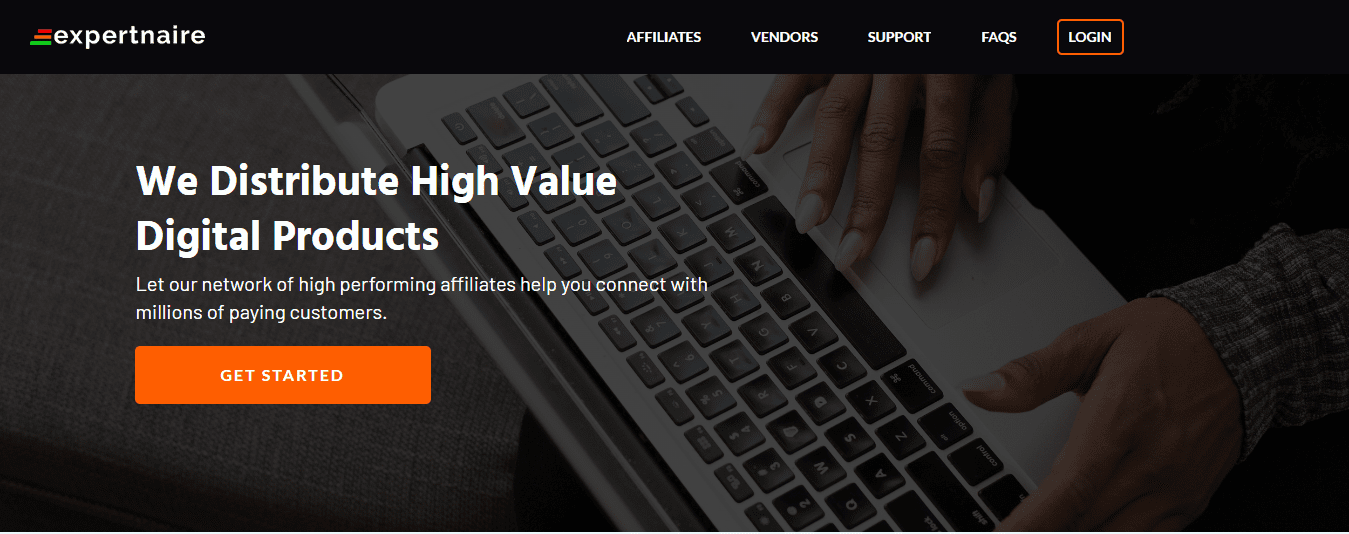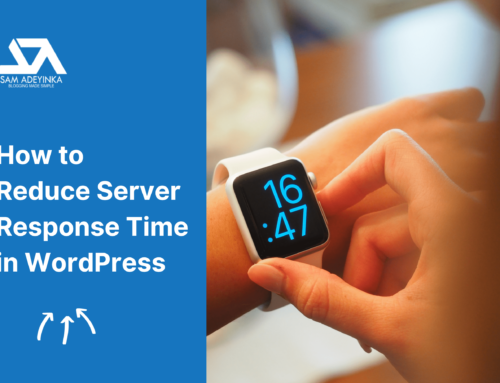Last updated on October 10th, 2023 at 04:30 am
Understanding Blog Monetization
If you’ve made it this far, congratulations! You’ve already taken the first steps towards starting your blog in Nigeria. But as they say, the journey of a thousand miles begins with a single step. And in the case of blogging, it’s not just about starting a blog; it’s also about turning it into a profitable venture. So, in this section, we’re going to dive deep into the world of blog monetization.
But first, let’s define what blog monetization is all about.
What is Blog Monetization?
Blog monetization, in simple terms, is the process of making money from your blog. It’s the reward you get for all the hard work you put into creating valuable content and building an audience. As a Nigerian blogger, there are various methods available to you for monetizing your blog, and we’ll explore some of them shortly.
But before we get into the nitty-gritty of how to make money with your blog, let’s take a moment to understand why blog monetization is essential.
Why is Blog Monetization Important?
When you start a blog in Nigeria, you’re essentially investing your time, effort, and sometimes money into a creative endeavor. While passion and a desire to share your knowledge or experiences may be your primary driving force, it’s also crucial to consider the sustainability of your blogging journey. Monetization helps you turn your blog into a self-sustaining venture that can potentially replace or supplement your income.
Moreover, earning money from your blog allows you to reinvest in your blogging activities. You can improve your website, create better content, and reach a wider audience. It’s a win-win situation where both you and your readers benefit.
Now that we’ve established the importance of blog monetization let’s explore the various methods available to Nigerian bloggers.
6 Monetization Methods for Nigerian Bloggers
This blog post would be incomplete if I were to share only how to start a blog in Nigeria and not talk about the different monetization strategies that exist to help you print money online consistently and sustainably. Below, I share 6 different monetization methods for Nigerian bloggers (you can use this regardless of where you are in the world).
1. Advertising Revenue
One of the most common ways to monetize your blog is through advertising. By displaying ads on your website, you can earn money based on the number of impressions or clicks those ads receive. While Google AdSense remains a popular choice for bloggers, there’s a plethora of Google AdSense alternatives like Adsterra, Taboola, Propeller Ads, and Media.net, which can be lucrative options for diversifying your revenue streams.
Advantages:
- Immediate Income: Advertising revenue provides a steady and relatively predictable source of income for bloggers.
- Diverse Advertising Options: With various ad networks to choose from, you can select the one that best fits your niche and audience.
- No Product Creation Required: Unlike some other monetization methods, advertising doesn’t require you to create your own products or services.
Challenges:
- Impression and Click Requirements: To maximize earnings, your blog may need a sizable audience to generate sufficient impressions and clicks.
- Balancing Sponsored and Organic Content: It’s important to strike a balance between sponsored and organic content to maintain your blog’s authenticity and reader trust.
- Ad Relevance: Ensuring that ads align with your blog’s theme and target audience can improve user experience and click-through rates.
- Ad Network Policies: Each ad network has its own policies and guidelines that bloggers must adhere to.
Incorporating advertising into your monetization strategy can provide a steady income stream, but it’s essential to choose the right ad network, optimize ad placement, and maintain a user-friendly blog layout to maximize your earnings.
Pros:
- Predictable income through ad networks
- Minimal effort once set up
- Options for various ad formats
Cons:
- Ad revenue may not be substantial initially
- Ad placement can affect user experience
- Balancing ads with content quality
2. Affiliate Marketing for Nigerian Blogs
Affiliate marketing is a powerful strategy that allows bloggers to earn a commission by promoting products or services from other businesses. It’s a win-win scenario: businesses gain more customers, and bloggers earn a passive income. In Nigeria, affiliate marketing has become an enticing opportunity for bloggers to monetize their platforms effectively.
It’s important to note that this is a fantastic monetization strategy for Nigerian bloggers, especially if you focus on promoting products or services that resonate with your target audience. Samsudeen of Cybernaira and Isuamfon are folks I know who make a lot of money promoting affiliate products in Nigeria.
Understanding Affiliate Marketing
Affiliate marketing involves three key players: the blogger (affiliate), the merchant (seller of the product or service), and the consumer (audience). Here’s how it works:
- Choose the Right Affiliate Programs: Start by identifying affiliate programs that align with your blog’s niche and cater to your audience’s interests. In Nigeria, numerous affiliate programs cater to various niches, from e-commerce to digital products.
- Promote Affiliate Products: Once you join an affiliate program, you’ll gain access to unique affiliate links or banners. Incorporate these promotional materials naturally within your blog posts, ensuring they’re relevant to your content. Avoid overwhelming your readers with too many affiliate links; instead, focus on quality recommendations.
- Drive Traffic: Generating traffic is crucial to succeeding in affiliate marketing. Write informative, engaging, and SEO-optimized content to attract readers. Leverage social media, email marketing, and other channels to drive targeted traffic to your blog.
- Build Trust: Building trust with your audience is paramount. Be transparent about your affiliate partnerships and only endorse products or services you genuinely believe in. Authenticity resonates with readers and enhances your credibility.
- Track Performance: Most affiliate programs provide comprehensive dashboards for tracking clicks, conversions, and earnings. Regularly monitor your performance to identify what works best for your blog.
Getting Started with Affiliate Marketing in Nigeria

Click “Get Started” to Sign Up for Expertnaire
If you’re new to affiliate marketing in Nigeria, here’s a step-by-step guide to help you get started:
Step 1: Select Your Niche
- Choose a niche you’re passionate about and have knowledge in.
- Ensure there’s a demand for affiliate products or services within your chosen niche.
Step 2: Research Affiliate Programs
- Explore Nigerian affiliate programs and global programs that accept Nigerian affiliates.
- Check commission rates, payment methods, and the reliability of affiliate programs.
Step 3: Create High-Quality Content
- Craft valuable, informative, and engaging content that appeals to your target audience.
- Incorporate affiliate links naturally within your content.
Step 4: Promote Your Blog
- Utilize social media, email marketing, and SEO to attract traffic to your blog.
- Build an email list to nurture relationships with your audience.
Step 5: Monitor and Optimize
- Regularly analyze your affiliate marketing performance.
- Optimize your strategies based on what works best for your blog.
Pros:
- Passive income potential
- Wide range of products to promote
- Earnings based on performance
Cons:
- Requires effective marketing and promotion
- Affiliate program policies vary
- Income can be inconsistent
Success Stories of Nigerian Affiliate Marketers
To inspire your affiliate marketing journey, let’s delve into some success stories of Nigerian bloggers who have excelled in the affiliate marketing niche:
- Blessing Kolawole (African Giant): Blessing Kolawole, famously known as African Giant, has achieved remarkable success in the world of affiliate marketing. Starting with a passion for digital marketing, Blessing ventured into affiliate marketing with a determination to succeed.
Through years of dedicated work and strategic marketing efforts, Blessing has not only built a strong online presence but has also generated substantial earnings. His affiliate marketing journey has allowed him to earn a consistent stream of income by promoting products and services relevant to his audience.
Blessing’s commitment to affiliate marketing has resulted in financial success that continues to grow. His story serves as an inspiration to aspiring affiliate marketers in Nigeria and beyond.
- Ronald Nzimora: Ronald Nzimora is another prominent figure in the Nigerian affiliate marketing scene. With a keen understanding of the affiliate marketing landscape, Ronald has navigated this field with finesse.
His journey began with a vision to leverage the power of affiliate marketing to create a sustainable income stream. Over the years, Ronald has not only realized his vision but has exceeded expectations.
Through strategic partnerships and effective marketing campaigns, Ronald has earned a significant income as an affiliate marketer. His success story demonstrates the immense potential that affiliate marketing offers for those willing to invest their time and effort.
- Sam Harvard: Sam Harvard is a name synonymous with affiliate marketing excellence. His journey into affiliate marketing started with a desire to share valuable products and services with his audience while generating income in the process.
Sam’s dedication to this field has resulted in substantial earnings. Through carefully selected affiliate programs and a deep understanding of his audience’s needs, he has achieved financial success that continues to grow.
His success story stands as a testament to the opportunities that affiliate marketing presents to those who are committed and persistent. Sam Harvard’s journey serves as an inspiration to budding affiliate marketers looking to follow in his footsteps.
These affiliate marketing gurus have demonstrated that with passion, dedication, and strategic marketing, it’s possible to achieve remarkable success and earn a significant income through affiliate marketing in Nigeria. Their stories provide valuable insights and motivation for those embarking on their own affiliate marketing journeys.
These success stories showcase that affiliate marketing is a viable path to financial independence for Nigerian bloggers. With dedication, strategic planning, and the right affiliate programs, you can turn your blog into a lucrative income source.
Remember, success in affiliate marketing requires persistence and patience. Don’t be discouraged by initial challenges; instead, focus on refining your approach and delivering value to your readers.
Check this out: Best Affiliate Marketing Platforms and Programs for [2023]
3. Attracting Sponsors and Advertisers
One of the most sought-after avenues for blog monetization is through sponsored posts and advertisements. These partnerships can provide a steady stream of income while allowing you to maintain the authenticity and quality of your content. The good part of this is your ability to collaborate with local or international brands to publish sponsored posts on your blog and make money.
Building Your Blog’s Authority
Before sponsors and advertisers come knocking on your virtual door, it’s crucial to establish your blog’s authority within your niche. Consistently delivering valuable, high-quality content is the first step. Your blog should be a resourceful hub where readers turn to gain insights, learn something new, or find solutions to their problems.
To build your authority, consider the following strategies:
- Consistent Posting: Regularly update your blog with fresh, informative content. This not only keeps your audience engaged but also signals to search engines that your blog is active and relevant.
- Guest Blogging: Collaborate with fellow bloggers in your niche by contributing guest posts to their sites. This not only expands your reach but also positions you as an expert in your field.
- Engage with Your Audience: Interact with your readers through comments, social media, and email newsletters. Understanding their needs and preferences will help you tailor your content to better serve them.
- Optimize for SEO: Implement effective search engine optimization (SEO) strategies to improve your blog’s visibility on search engine results pages (SERPs). This can attract more organic traffic and potential sponsors.
Crafting an Attractive Pitch
Once your blog has gained traction and established authority, it’s time to reach out to potential sponsors and advertisers. Here are some key steps to crafting an attractive pitch:
- Research: Identify companies and brands that align with your niche and target audience. Research their products or services to ensure they resonate with your readers.
- Customize Your Pitch: Tailor your pitch to each prospective sponsor. Highlight how your blog can benefit their business, whether it’s by reaching a specific demographic or promoting a product.
- Showcase Your Numbers: Provide statistics on your blog’s traffic, engagement metrics, and social media reach. Sponsors want to know they’ll get exposure to a sizable and engaged audience.
- Highlight Past Successes: If you’ve previously worked with sponsors or advertisers, share your success stories. Be specific about the results achieved, such as increased brand visibility or product sales.
- Offer Multiple Options: Present different partnership opportunities, such as sponsored blog posts, banner ads, or social media promotions. This flexibility can attract sponsors with varying marketing goals.
Pros:
- Immediate income
- Opportunity to collaborate with brands
- Enhanced credibility and authority
Cons:
- May require a sizable audience
- Content must align with the sponsor’s objectives
- Balancing sponsored and organic content
4. Monetizing with Digital Products
If you’re looking for more control over your monetization strategy, creating and selling digital products is a lucrative option. This method allows you to offer valuable resources directly to your audience while retaining full control over product creation and pricing. Let’s dive into how you can effectively monetize your blog with digital products:
Identify Your Niche and Audience Needs
Before diving into digital product creation, it’s essential to understand your blog’s niche and your audience’s needs. What topics are your readers most interested in? What problems can you solve for them? By pinpointing your niche and audience pain points, you can tailor your digital products to meet specific demands.
Types of Digital Products to Consider
- eBooks: Create comprehensive eBooks on topics relevant to your niche. Ensure your eBooks provide in-depth insights, actionable advice, or unique perspectives that resonate with your audience.
- Online Courses: Develop online courses that dive deep into subjects you’re knowledgeable about. Offer structured lessons, video tutorials, and interactive quizzes to enhance the learning experience.
- Printables: Design printables, templates, or worksheets that simplify tasks or help your audience achieve specific goals. Whether it’s a meal planner, budget template, or fitness tracker, these printables should align with your blog’s theme.
Setting Up Your Online Store
To sell digital products effectively, you’ll need a user-friendly online store on your blog. Consider using e-commerce platforms like WooCommerce (for WordPress) or third-party platforms like Gumroad or Shopify to set up your store. Ensure your store is visually appealing and easy to navigate, with clear product descriptions and pricing.
Promoting Your Digital Products
Creating digital products is just the beginning; promoting them is equally crucial. Here’s how to get the word out:
- Leverage Your Blog: Write informative blog posts related to your digital products. Use these posts to educate your audience about the value of your products and how they can address specific pain points.
- Email Marketing: Build and nurture an email list to reach potential customers directly. Send out newsletters highlighting your digital products, special promotions, or limited-time offers.
- Social Media: Use your social media platforms to showcase your products. Share engaging content, testimonials, and sneak peeks to generate interest.
- Collaborate with Others: Partner with influencers or bloggers in your niche for product reviews, joint promotions, or guest posts. Their endorsements can significantly expand your product’s reach.
Continuous Improvement
Listen to feedback from your customers and make improvements to your digital products based on their suggestions. Encourage reviews and testimonials to build trust with potential buyers. As your blog’s authority and audience grow, your digital products can become a substantial source of income.
Pros:
- High-profit potential
- Direct control over pricing and content
- Opportunity to showcase expertise
Cons:
- Requires product development time
- Marketing and promotion efforts needed
- Sales may fluctuate
Monetizing your blog with digital products offers both creative freedom and income potential. By addressing your audience’s needs with valuable resources, you can enhance your blog’s revenue while providing real value to your readers.
5. Consulting and Coaching
As you establish yourself as an authority in your niche, you gain valuable expertise that others are eager to tap into. Offering consulting and coaching services can be a lucrative avenue for monetizing your blog while providing substantial value to your readers.
Leveraging Your Niche Expertise
Having become a recognized figure in your niche, you possess a wealth of knowledge that can benefit your audience. Many Nigerians seek guidance, insights, and hands-on expertise, and they are often willing to invest in your knowledge.
Personalized Consultations
As a blog trainer based in Lagos, I regularly engage with individuals both online and offline, dedicating 2 to 4 hours to provide tailored guidance and support. Whether it’s through virtual sessions or in-person meetings, these consultations offer a valuable exchange of knowledge and practical advice.
Pros:
- High-profit potential
- Direct control over pricing and content
- Opportunity to showcase expertise
Cons:
- Requires product development time
- Marketing and promotion efforts needed
- Sales may fluctuate
How to Get Started
If you’re interested in exploring consulting and coaching opportunities, feel free to reach out to me. I offer personalized sessions where we can delve into the specifics of how you can leverage your niche expertise to create meaningful consultations and coaching services.
By sharing your knowledge and helping others succeed, you not only monetize your blog effectively but also contribute to the growth of aspiring bloggers and professionals in your field.
What Others Are Saying…
EXCELLENT
6. Monetizing Your Blog with Membership and Subscription Models
While sponsored posts and advertisements are popular ways to monetize your blog, another avenue worth exploring is membership and subscription models. These strategies can offer a dependable source of income while allowing you to maintain the authenticity and quality of your content.
Building a Blog of Value
Before implementing membership and subscription models, it’s essential to establish your blog as a valuable resource within your niche. This involves consistently delivering high-quality content that resonates with your audience. Your blog should become a go-to destination where readers seek insights, knowledge, or solutions to their problems.
To boost your blog’s value, consider these strategies:
- Consistent Posting: Keep your blog updated with fresh, informative content on a regular basis. This not only keeps your audience engaged but also signals to search engines that your blog is active and relevant.
- Guest Blogging: Collaborate with fellow bloggers in your niche by contributing guest posts to their websites. This expands your reach and positions you as an authority in your field.
- Engage with Your Audience: Interact with your readers through comments, social media, and email newsletters. Understanding their needs and preferences will help you tailor your content to better serve them.
- Optimize for SEO: Implement effective search engine optimization (SEO) strategies to improve your blog’s visibility on search engine results pages (SERPs). This can attract more organic traffic and potential subscribers.
Crafting an Attractive Membership Model
Once your blog has gained traction and established authority, it’s time to consider membership and subscription models. Here are key steps to create an appealing membership pitch:
- Research: Identify your target audience and their preferences. Research existing membership models and platforms that align with your niche.
- Customize Your Pitch: Tailor your membership pitch to your specific audience. Explain how your premium content or exclusive community will benefit them, whether it’s by providing in-depth knowledge, tools, or a supportive community.
- Highlight Value: Clearly communicate the value of your membership. Showcase the unique features, benefits, and resources that subscribers will access.
- Pricing Strategy: Determine a pricing structure that reflects the value you offer while remaining competitive. Consider offering tiered memberships with varying benefits to cater to different subscriber needs.
- Launch and Promotion: Launch your membership program with a well-planned marketing strategy. Promote it through your blog, email list, and social media channels to attract initial subscribers.
Membership and Subscription Models
Pros:
- Steady and predictable income
- Stronger sense of community among subscribers
- Opportunity to provide exclusive content and benefits
Cons:
- Requires the development of premium content
- Ongoing management and engagement with subscribers
- May take time to build a substantial subscriber base
By implementing membership and subscription models, you can create a reliable revenue stream for your blog while delivering value to your dedicated audience. It’s a win-win strategy that strengthens your blog’s sustainability and fosters a sense of belonging among your subscribers.
Personal Experiences with Blog Monetization
In my blogging journey, I’ve experienced the transformative power of monetization firsthand. From making my first $10 through blog commenting (on Kingged.com those days) to winning $80 in a blog commenting contest (organized by Enstine Muki’s blog), and making consistent seven (7) figures with Google Adsense, I’ve witnessed the incredible opportunities that the digital spectrum offers. These initial successes fueled my determination to explore more monetization avenues.
I later invested in my blog by securing my domain name, web hosting, and a professional theme, a decision that has metamorphosed me to becoming a seasoned blogger and a professional blog trainer in Lagos, Nigeria. This transformation allowed me to attract more partnerships and hungry readers, ultimately leading to greater income opportunities.
As I continue my blogging endeavors, I’ve learned that striking a balance between revenue generation and providing value to my audience is paramount. The relationships I’ve built with both partners and readers have been instrumental in my growth as a blogger.
In a nutshell, monetizing your blog in Nigeria is a journey filled with opportunities and rewards. By focusing on building your blog’s authority, crafting compelling pitches to sponsors and advertisers, and exploring various revenue streams, you can turn your passion for blogging into a sustainable source of income.
Building a Profitable Blogging Career
So, you’ve taken the plunge into the world of blogging in Nigeria, and you’re on your way to creating a successful and profitable blog. Congratulations! But as you continue on this exciting journey, there’s a crucial phase that can’t be overlooked – scaling your blogging business.
Strategies for Scaling Up Your Blog
Scaling up your blog means taking it to the next level, where you can see substantial growth in both traffic and revenue. Here are some proven strategies to help you achieve just that:
- Consistent Quality Content: As mentioned earlier, content is king in the blogging world. To scale your blog, you need to maintain a consistent schedule of high-quality content creation. This not only keeps your audience engaged but also attracts new readers.
- Diversify Your Content: While maintaining a focus on your niche, consider expanding into related topics. This allows you to cater to a broader audience and attract more readers interested in various aspects of your niche.
- SEO Mastery: As your blog grows, the importance of search engine optimization (SEO) cannot be overstated. Invest time in understanding SEO best practices and implementing them in your content. This will help your blog rank higher on search engine results pages (SERPs) and drive more organic traffic.
- Collaborate and Network: Building relationships within your niche and the broader blogging community can open up opportunities for collaboration. Guest posting on other blogs, participating in expert roundups, and engaging with fellow bloggers can help you reach a wider audience.
- Monetization Strategies: Explore different monetization avenues for your blog. Beyond ads and affiliate marketing, consider creating and selling your digital products or offering consulting services if you have expertise in your niche. I covered all of those already… feel free to explore. Your imagination is your only limitation.
The Importance of Consistency and Perseverance
Scaling your blogging business is not an overnight endeavor. It requires patience, consistency, and perseverance. Here’s why these qualities are essential:
Consistency: Your readers expect a reliable schedule of content. Consistency in publishing not only keeps your audience engaged but also builds trust. When readers know when to expect new content, they are more likely to return to your blog.
Perseverance: Blogging can be challenging, especially during the early stages when you might not see significant results. Perseverance is what separates successful bloggers from those who give up. Keep learning, adapting, and pushing forward, even when faced with obstacles.
In conclusion, scaling your blogging business is an exciting journey that requires dedication and strategic planning. By consistently delivering quality content, diversifying your topics, mastering SEO, networking with fellow bloggers, and exploring various monetization strategies, you can achieve remarkable growth. Remember, success in blogging comes to those who persevere and stay committed to their goals.
Read this: 3 Major Ways to Skyrocket Your Blog Traffic


















Thank God am here
Am starting to enjoy this blog.
Awesome to hear that, Favour!
How are you doing these days?
Been a while I see you around here.
Sam Adeyinka recently posted…How to Create an Authority Blog (Step-by-Step Guide)
Hey Sam! 😊
Wow! This post is fully packed with some seriously helpful tips on starting a blog in Nigeria and making money from it. Your step-by-step guide makes the whole process seem so much more manageable!
I love how you emphasized the importance of choosing the right niche. It’s something I struggled with when I started my own blog, and your insights have given me a fresh perspective. Do you have any suggestions for brainstorming niche ideas?
Looking forward to more fantastic content from you! Keep up the great work. 👍
Cheers,
Seun
How did I miss this wonderful comment?!
Well, I’ve been on and off blogging for the past 3yrs… I’m back now though.
I’m super sure you must have gotten around the question you asked…. if not, I will share a tip or two: personally, I feel finding a niche is the same as finding your purpose. You just have to know what makes you tick; what you’re passionate about.. and you’re good to go.
I would write down all the things I’m passionate and interested in… things that make me super excited… I would make sure that they can easily be monetized, then will go out and try to validate the idea.
That’s it.
Sam
Sam Adeyinka recently posted…How to Create an Authority Blog (Step-by-Step Guide)
Thank you for sharing these valuable insights! Starting a blog in Nigeria can seem daunting, but your article breaks it down into manageable steps. I appreciate the guidance.
I truly heartpreciate your heads up, Olatubosun! Let’s keep thriving! 🚀
Sam Adeyinka recently posted…How to Create an Authority Blog (Step-by-Step Guide)
[…] Start a Blog […]
[…] Start a Blog […]
Hey there!
I just stumbled upon your blog, and I have to say, it’s been a fantastic journey reading through your guide on starting a blog in Nigeria and making money from it. Your enthusiasm is contagious, and your step-by-step approach makes it seem so achievable!
I’ve been contemplating starting my own blog for a while now, and your post has given me that extra push I needed. Your tips on choosing a niche and monetization strategies were spot on. I can’t wait to put them into action.
Thanks a million for sharing your knowledge and experiences with us. Keep up the awesome work, and I’ll be sure to follow your blog for more incredible insights and inspiration.
Cheers to the blogging adventure ahead!
Oh, namesake! I’m super grateful for your kind words man.
I’m glad you found value in this blog post. I would truly appreciate if you could spare some time to help share it with your network.
Thank you, my friend!
Sam Adeyinka recently posted…Unlocking $6000: A Blueprint for Successful Blogging Earnings in Nigeria
Hey there! Adio Michael here, and I just wanted to say how much I enjoyed reading your post! Your step-by-step guide on starting a blog in Nigeria is not only super informative, but it’s also presented in such an engaging way. I’m feeling inspired and ready to dive into the world of blogging myself!
Keep up the awesome work, and thanks for sharing your expertise! Looking forward to more fantastic content from you. Cheers to blogging success!
Best regards,
Michael
Hey, Michael! 👋🏾
I’m glad you found the blog post engaging and valuable. I hope to keep seeing you on the blog.
Let’s grow together!
Thanks, fam.
Sam
Sam Adeyinka recently posted…Free WordPress Installation Service – Create Your Own Website Today!
Wow, what an amazing guide! This article is a goldmine for anyone looking to kickstart their blogging journey in Nigeria. Your step-by-step approach is incredibly helpful, and I’m truly inspired by your success story.
I can’t thank you enough for sharing your valuable insights and practical tips. Your dedication to helping others achieve their blogging dreams is truly commendable.
I’ve already started implementing some of your suggestions, and I’m feeling more confident about my blogging venture. Keep up the fantastic work, and please continue to share your expertise with us!
Wishing you continued success and looking forward to more fantastic content from you.
I love fast action-takers! You are doing well, Mercy… I can’t wait to read your testimony. By the way, if you do have questions or doubts, do not hesitate to reach out to me, I’d be willing to oblige.
Sam Adeyinka recently posted…SEO Friendly Content: 5 Creative Ways to Increase Website Traffic
Thank you for sharing these valuable tips on starting a blog in Nigeria. I appreciate the step-by-step guidance you’ve provided. I’m curious to know more about content strategy for attracting a local audience. Can you delve deeper into that in your next post?
Hello, Blessing! 👋🏾
I’m glad you found this post valuable. Thanks for stopping by to read and share the blog. I appreciate you!
And thanks for suggesting that blog post topic, I will try my best to research and develop content on it… however, I already covered a topic around social media management and I briefly touched on content strategy, you might want to check that out via the link below.
Sam
Sam Adeyinka recently posted…How to Become a Social Media Manager in Nigeria
Amazing the website. Over time, your blog can become a go-to resource for anyone seeking information or inspiration in your chosen field.
Thank you, Nasir! 🙏🏾🚀
“Incredibly insightful guide! Your step-by-step instructions on starting a blog in Nigeria are invaluable. The money-making tips are a game-changer. Thank you for sharing this wealth of knowledge!”